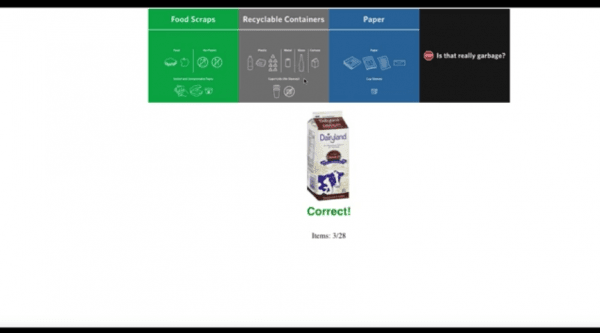A simple online game can teach people to more accurately sort waste—with lasting results, a new UBC study has found.
Study participants who played the game developed by UBC researchers received immediate feedback on their sorting choices. The second time they played—when feedback was no longer provided—players still improved their average accuracy from 69 per cent to 84 per cent. Even when a week passed between games, players still improved their accuracy.
As part of the study, researchers also exposed students living in university residences to the game, then monitored their waste bins. They observed both a slight reduction in contamination—defined as the presence of items that shouldn’t be in a particular bin—and an increase in compost weight.
“This immediate feedback increases recycling and composting accuracy over the longer term, both in the lab and in the field,” said Jiaying Zhao, assistant professor in UBC’s department of psychology and senior author of the study. “One of the big questions in psychology is how long do these effects last? Our biggest takeaways are the fact that immediate feedback works, and the effects last over time.
Continue reading at University of British Columbia (UBC).
Image via University of British Columbia (UBC).


